“The country has rejected me”: The ‘Nigerians’ born and bred in Cameroon, yet not Cameroonians
- In island communities on the southwest coast of Cameroon, the majority of the inhabitants are Nigerians. Stifled by administrative bottlenecks and despite their wish to, these Nigerians, most of whom were born in these communities, have failed to obtain Cameroonian citizenship.
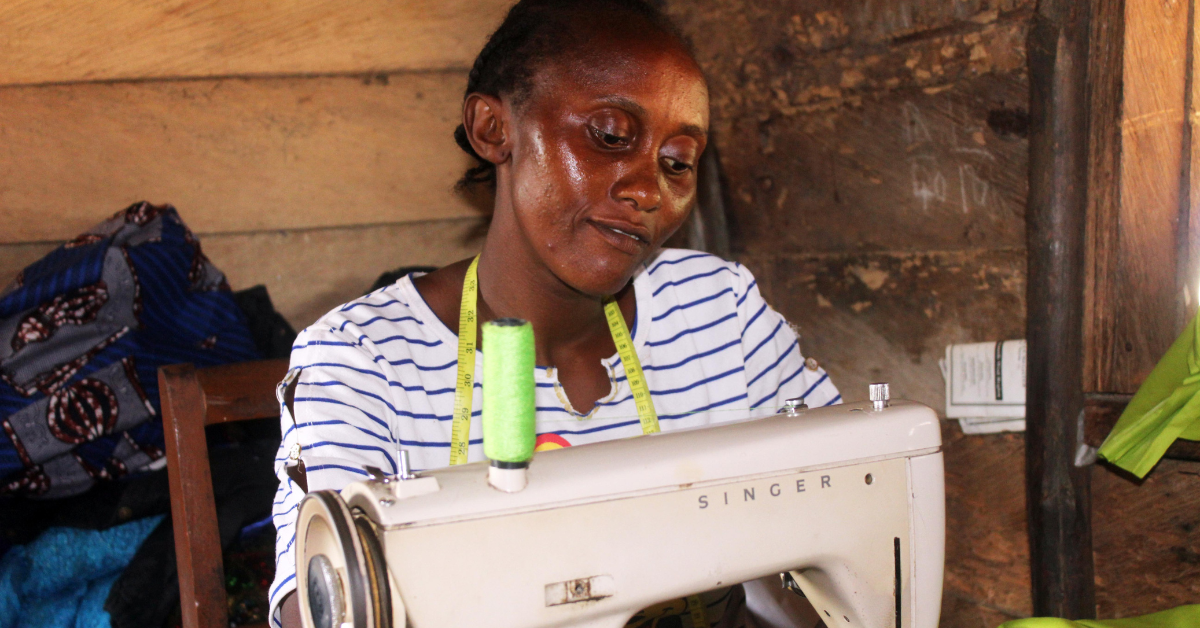
Buea, Cameroon (Minority Africa) — Stella Ogunsemore, 31, was born in the small island community of Mbomo, 20 minutes away from Kangue Island. 50 years ago, Ogunsemore’s parents migrated from Nigeria and settled in Mbomo. While the mother of three sees herself as a Cameroonian — given that she was born and raised there — Cameroon doesn’t recognize her as such.
“I was born and bred in Cameroon but I don’t have a Cameroonian nationality,” Ogunsemore, who is also a seamstress, tells Minority Africa.
She has made several attempts to obtain Cameroonian nationality but has failed.
“I have compiled my documents several times and dropped them in Buea to get a nationality as a Cameroonian but I have never succeeded.”
Because of this, Ogunsemore has to reserve 150,000frs (about $250) of her small income to acquire a residence permit every two years.
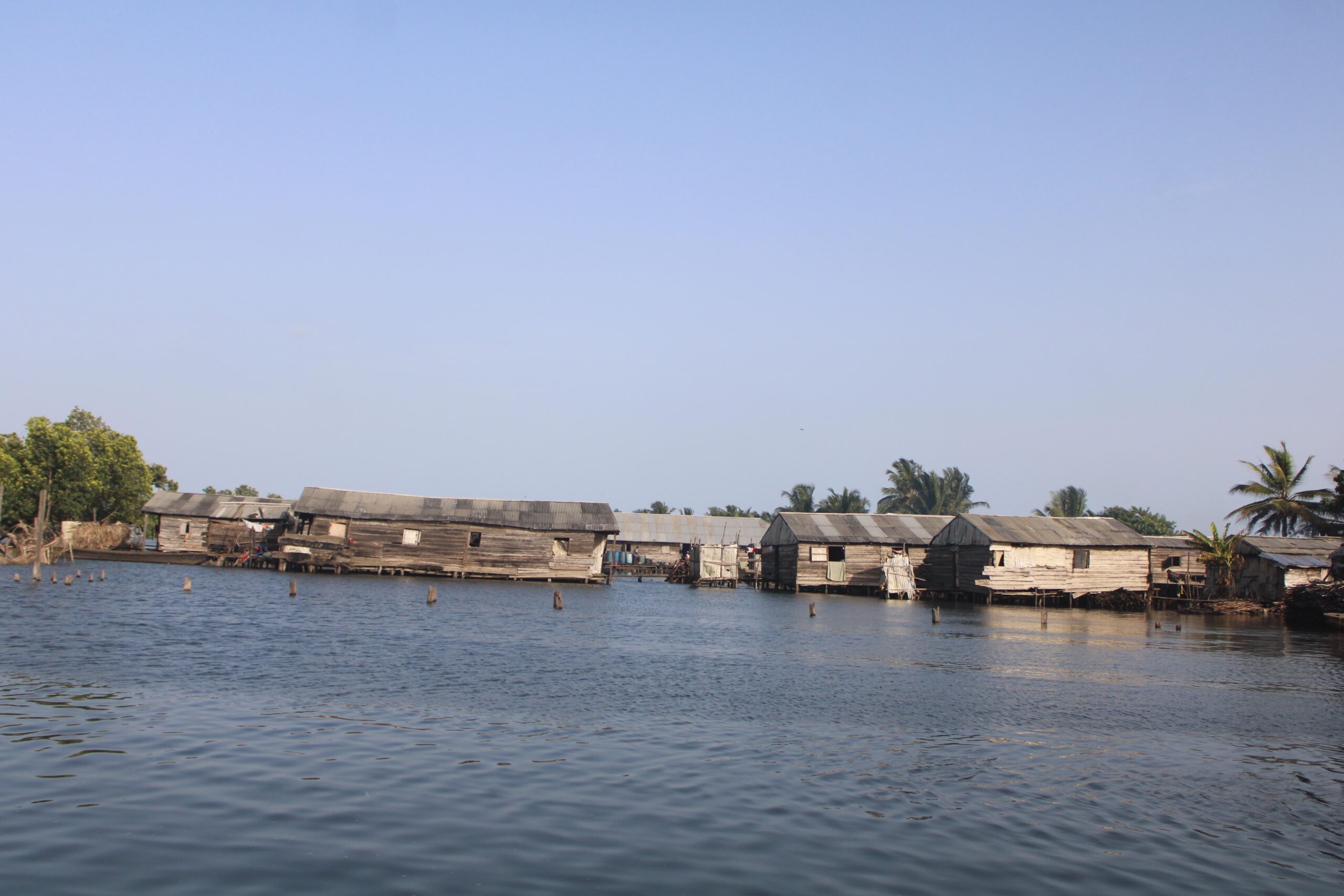
“From time to time, Cameroon’s forces of law and order visit our community and if you are caught without a residence permit, you will be arrested and you will pay a lot of money to gain your freedom,” she says.
At the time of the interview, Ogunsemore could not travel to any nearby town to get supplies for her business since her residence permit had expired.
“I am still raising money to acquire a new residence permit. I pay people to go to town to get supplies for my business for fear of being arrested for non-possession of residence permit if I am to go myself.”
Cameroon shares a long border with Nigeria and is among the countries hosting a large population of Nigerian diasporas in Africa.
Since the independence of the two brotherly nations in the 60s, they have enjoyed peaceful bilateral relations until the 80s and 90s when a border dispute over the oil-rich Bakassi Peninsula broke out. This was however settled amicably by the International Court of Justice in 2002 and right up till now, the two countries have maintained peaceful ties.
Nigeria hosts over 66,000 Cameroonian refugees fleeing the armed conflict in the Anglophone regions of Cameroon and about 4 million Nigerians live in Cameroon, an estimated 109,000 of them being refugees fleeing from the Boko Haram hostilities.
Some of these Nigerians were born in Cameroon and have lived all their lives in Cameroon but in most cases haven’t gained Cameroonian nationality despite their wish to be Cameroonian citizens.
The story of Ogunsemore is not any different from that of 45-year-old Adeniyi Jones. After several attempts to get Cameroonian nationality, the father of four decided to give up on his ambitions and accepted his fate.
“I see myself as a Cameroonian, though I don’t have ‘papers’ to back that up. I have tried severally to acquire the Cameroonian nationality but unfortunately, it has never been successful,” says Adeniyi.
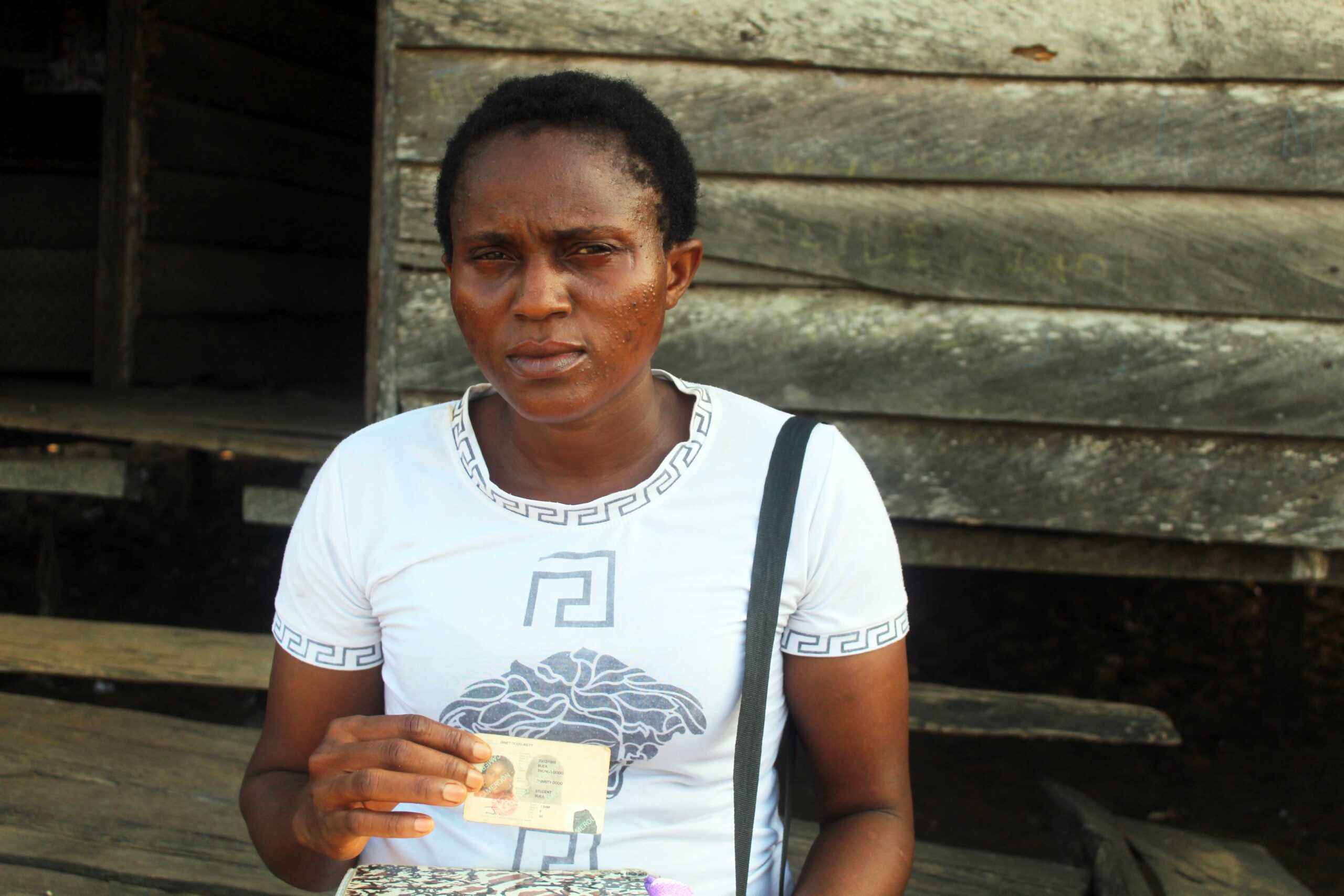
He laments that the procedure of acquiring nationality has been made unnecessarily long and costly.
“I guess they don’t want us to ever acquire Cameroonian nationality.”
One of the provisions of law No. 68-LF-3 of 11th June 1968, which spells out the procedure of acquiring Cameroonian citizenship, gives foreign nationals the right to acquire Cameroonian citizenship if they have been living in Cameroon for at least five years, have no criminal records as well as health issues. While Adeniyi insists he fulfills these conditions, the dream of getting Cameroonian citizenship is still a far-fetched reality for him.
Vevanje Cedric, a paralegal who works with Spiral Solicitor Law Firm in Buea, says it is comparatively easy for foreigners with deep pockets to get Cameroonian citizenship given that the process is costly especially if you were to hire the services of a legal expert to follow up the process.
“I was following up the process of acquiring Cameroonian citizenship for a certain Nigerian lady but could not continue because she didn’t have the necessary finances to proceed with the process,” says Vevanje.
Another hindrance to acquiring Cameroon citizenship, Vevanje continues “is that some foreign nationals applying for Cameroonian citizenship are not willing to give up the other citizenship. This becomes impossible because Cameroon doesn’t accept dual nationality.”
While the process of getting Cameroonian nationality remains cumbersome for foreign nationals, it is fairly easy for women, unlike men. According to Article 17 of the Cameroon nationality code, a foreign woman who marries a Cameroonian may acquire Cameroonian nationality based on her express declaration which takes effect on the date of marriage.
Dodoirety Jennette, 30, gained Cameroonian citizenship when she got married to a Cameroonian. Dodoirety, who is a teacher, confesses that she didn’t get married to her Cameroonian sweetheart as a means of getting Cameroonian nationality but she is very happy that she found love and nationality at the same time.
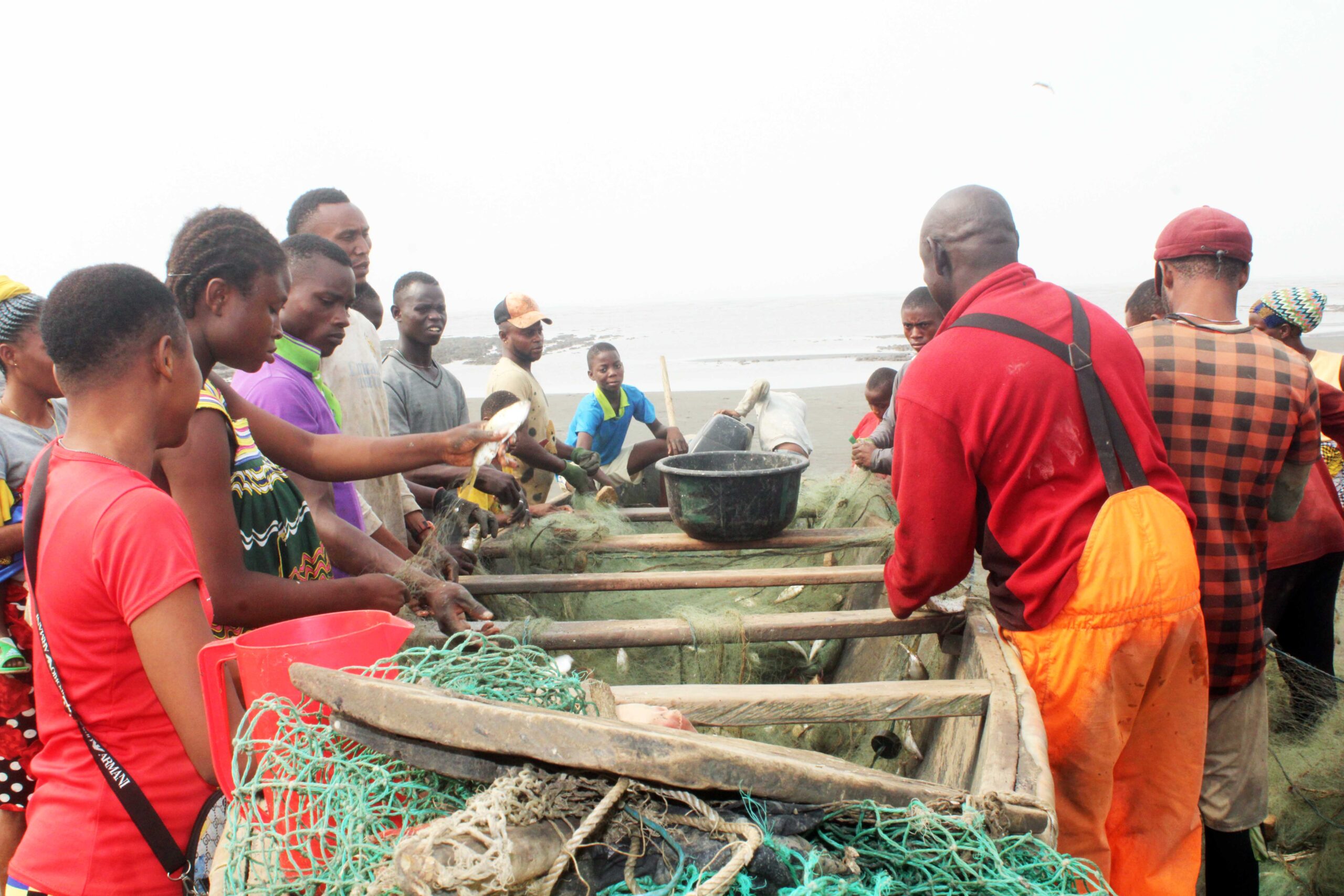
“Before getting married to my husband, I tried severally to obtain Cameroonian citizenship without success. I am very happy that I am now a Cameroonian citizen,” says Dodoirety as she flaunts her Cameroonian identity card, which she now refers to as her Green Card.
The challenges of Nigerians in these island communities are not only limited to the level of acquiring Cameroonian nationality. Chief Eteli, a fisherman and also the Quarter Head of Ijaw Mabeta, a small Island community on the southwest coast of Cameroon says they suffer constant harassment from Cameroon marine forces that extort money from them regularly. Ijaw Mabeta is inhabited by Nigerians chiefly from the Ijaw ethnic group.
“To avert harassment from Cameroon marine forces, all the fishermen in my community have agreed to pay some money (XAF 6000, about 6$) to them every week,” Chief Eteli tells Minority Africa. This is aside from the money they pay to the local council as fishermen. This weekly payment, according to Chief Eteli, is affecting their incomes which have been dropping continuously as a result of poor catch.
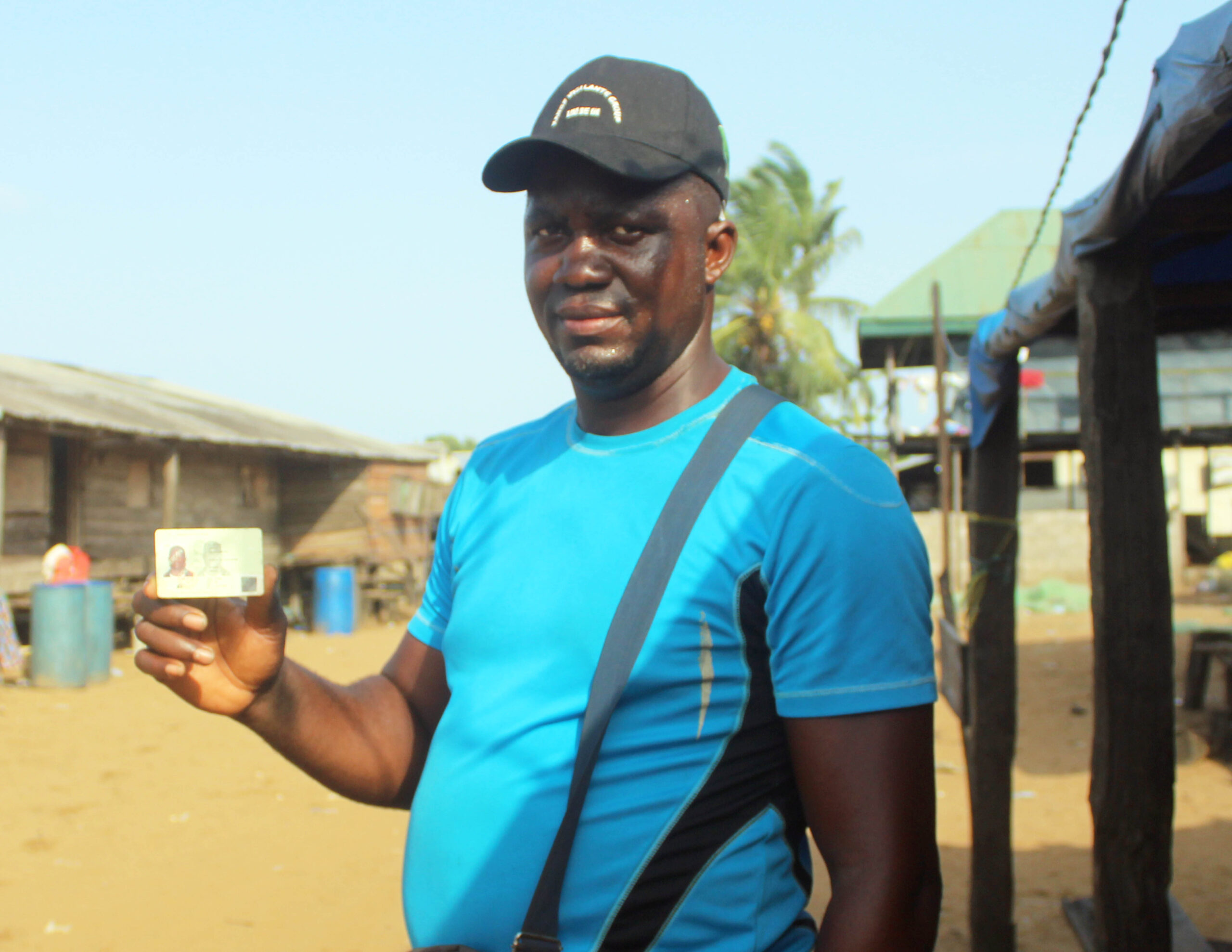
These island communities also lack basic public utilities like pipe-borne water, electricity, and many more. Furthermore, inhabitants most of whom are engaged in artisanal fishing live in fear: fear that their community will one day be submerged in the Atlantic Ocean as a result of climate change.
Today, Ogunsemore considers herself a stateless person.
She says, “The country I consider mine has rejected me and I have never considered going back to Nigeria for permanent residence.”
Edited by Caleb Okereke, PK Cross, and Uzoma Ihejirika.
Shuimo Trust is a Cameroon-based journalist with a BSc in Journalism and Mass Communication from the University of Buea, Cameroon. He has 5 years of progressive experience as a journalist. His interests cut across environment, politics, and entertainment. He has served as editor-in-chief of the Cameroon-based environmental newspaper, Green Vision Newspaper. He is also the Founder of a political and culture blog known as Shuimo News. Shuimo Trust has also served as a communication officer for one of the leading conservation organizations in Cameroon, the Environment and Rural Development Foundation (ERuDeF). He has also written for the leading pan African Newspaper, The Continent.

